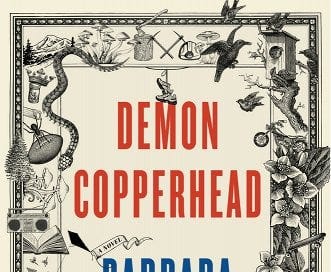'Demon Copperhead': Dickens meets the opioid crisis
Barbara Kingsolver's Pulitzer Prize-winning novel is a riveting, heartbreaking read.
This post contains an affiliate link or links. If you use a link to buy a book, I may earn a small commission. You can find all the books that have been featured in this newsletter in my Bookshop store.
As I read “Demon Copperhead,” Barbara Kingsolver’s latest novel, I couldn’t stop shaking my head in admiration. No wonder this novel won the Pulitzer Prize. It’s as if Charles Dickens’ “David Copperfield” and Beth Macy’s “Dopesick” ran off together and had a child.
Our protagonist Demon (government name Damon) gets his biography from “Copperfield” — if you know Dickens’ story and characters, it’s fun to see how Kingsolver reinvents them for a 20th-century American setting, in southern Appalachia. Take James Steerforth, the older, popular boy David meets at boarding school. In “Copperhead,” Steerforth becomes Sterling Ford, a high school football star and the undisputed leader in the foster home he and David share. Or take Agnes Wickfield, David’s best friend. She’s transformed into Angus, the only child of the football coach who agrees to take Demon into his palatial home and under his influential wing, partly because he sees potential in the boy’s speed.
“Copperfield” was Dickens’ furious indictment of a society that allowed children to languish in poverty, to be neglected or preyed upon by adults who should know better. With “Copperhead,” Kingsolver is similarly irate; her limning of the foster care system that Demon descends into after his mother’s death is heartbreaking to read.
While Demon’s aunt doesn’t have, for me, quite the same snap and vinegar that made David’s aunt such a delightful character, I found myself preferring Kingsolver’s rendition of our hero’s two love interests. (The difference in how a 19th-century man and a 21st-century woman write their female characters is quite palpable.) I never particularly cared for Dora, the ingenue who is David’s first love; I found her vacuous and wondered how David could possibly fall for her when he already had Agnes at his side. Kingsolver’s Dori is a much more potent character: Her seeming inability to interface with the realities of life stems from the addiction that’s ravaged their corner of Appalachia. She’s shrewd enough to figure out how to get her fix on no income; that intelligence and creativity makes her and Demon’s mutual attraction a little more understandable. Agnes has been the brunt of criticism that she’s a little too perfect, too much the “angel,” as David calls her repeatedly. Angus is definitely rougher around the edges, making her much more likable.
I could go on, but really — just stop reading now and get your hands on a copy of the book if you haven’t already.
When I put “Copperhead” into my library hold queue, there were something like 500 requests ahead of mine. I didn’t mind the wait. It was worth every second.




The only thing you've left out of this incisive, thoughtful review is the laugh out loud funny moments, the ironic quips that are typical of Appalachian humor with which Kingsolver, as did Dickens, and come to think of it Shakespeare, leavened tragic moments, and heightened them. I bought the book and am glad I did, intend to reread soon. And Kingsolver's rage at the pharmaceutical industry is as palpable as her fury at the foster care system. Thanks Amy, I"ve been waiting to read what you think of this truly great novel.
Yes, it was definitely worth the air in the queue. Good review!